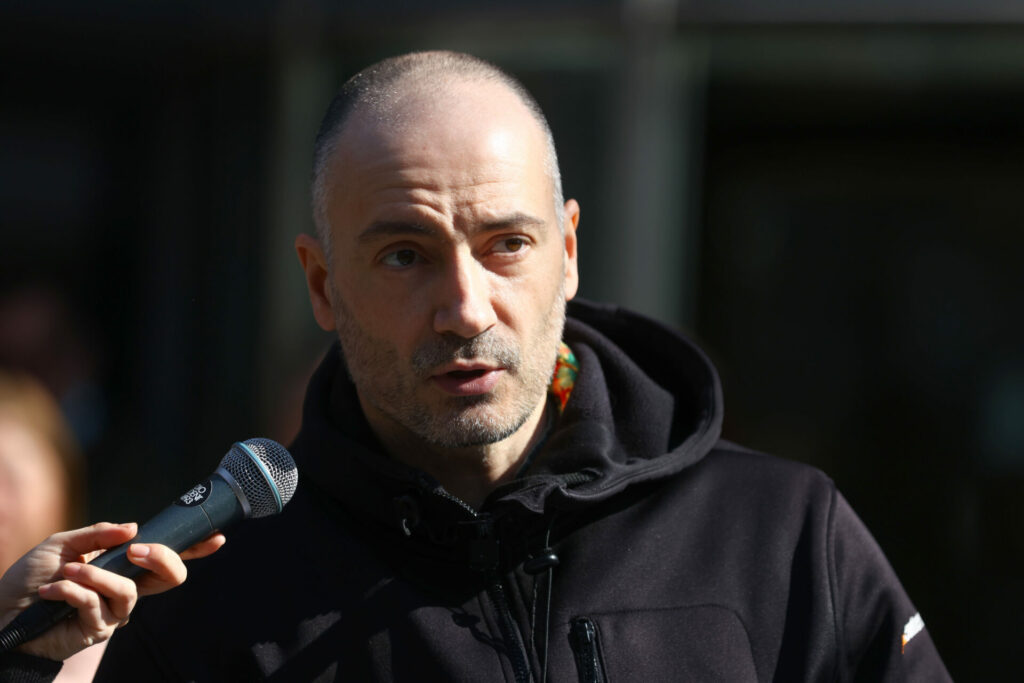The recent revelation that the web portal the Voice of Europe was allegedly receiving payments from the Kremlin and its political associates caused quite a stir in the European political and media landscape. The domestic media – led by the national media outlet Radio-Television Slovenia (RTV Slovenia) and the privately-owned 24ur – would nevertheless like to blame the affair on the Slovenian party that currently has the highest support according to public opinion polls, the Slovenian Democratic Party (Slovenska demokratska stranka – SDS). The latter is happening mainly because some of the party’s politicians have, in the past, agreed to be interviewed by the aforementioned web portal.
Janez Janša, MEP Milan Zver and the head of Janša’s cabinet in the previous government, Peter Šuhel, were supposedly interviewed for the web portal. The online media associated with the Slovenian transitional left are, therefore, writing articles about the SDS party being part of Russia’s spreading of misinformation in the European Union.
Slovenia’s most anti-Russian party is being accused of Russophilia
This is, of course, nonsense, because the SDS party is the most “anti-Russian” party in the Slovenian Parliament. Its President, Janez Janša, together with the Polish and Czech Presidents, was the first European leader to visit Kyiv after the start of the war, at a time when the Russians were actively shelling the city and seeking to occupy it.
The interviews published by the Voice of Europe had nothing to do with any Russian agenda, and the things the interviewees said (especially on migration) were the same as if they were being repeated on the domestic stage. At most, one could easily accuse Tanja Fajon, the Minister of Foreign and European Affairs, of Russophilia, as she cannot imagine a European security architecture without Russia, as she has stated before.
Therefore, this is nothing more but a transparent attempt to attack the most popular party in the country and to accuse it of Russophilia, which is absolutely ridiculous. The latter is all the more ironic given that there is actually a party in the coalition that makes no secret of its pro-Russian views (it is well known that the Left party – Levica, is fighting against NATO and Slovenia’s participation in it at all costs).
The SDS party politicians also talked about support for Ukraine on a “Russophile” portal
“As you have probably seen, in the interview you mentioned, the President of the SDS party also talked about Western support being crucial for Ukraine and warned that aid to Ukraine should be more extensive so that Ukraine could successfully protect its territory. He also spoke critically about countries trading with Russia despite sanctions,” the SDS public relations service told the RTV web portal, MMC. Šuhel and Zver also gave similar responses in their interviews, they added. “Of course, the representatives of our party were not paid for the interviews,” they added.
Sanctions against the Voice of Europe
As we have previously reported, on Wednesday, the Czech government imposed sanctions against the Prague-based Voice of Europe web portal. According to the Czech Foreign Ministry, the portal is part of a Russian operation, aiming to influence targets that need to be called into question, in order to affect Ukraine’s territorial integrity, sovereignty and freedom. The Belgian Prime Minister, Alexander De Croo, claims that some European politicians who have collaborated with the Voice of Europe have been paid to do so. The names of these individuals remain unknown, but according to Czech media, they are believed to be politicians from Belgium, France and Germany, as well as politicians from Poland, Hungary and the Netherlands. According to the Czech news portal Denik Nob, the Voice of Europe web portal published the opinions of politicians who demanded that the EU stop aid to Ukraine.
I. K.


